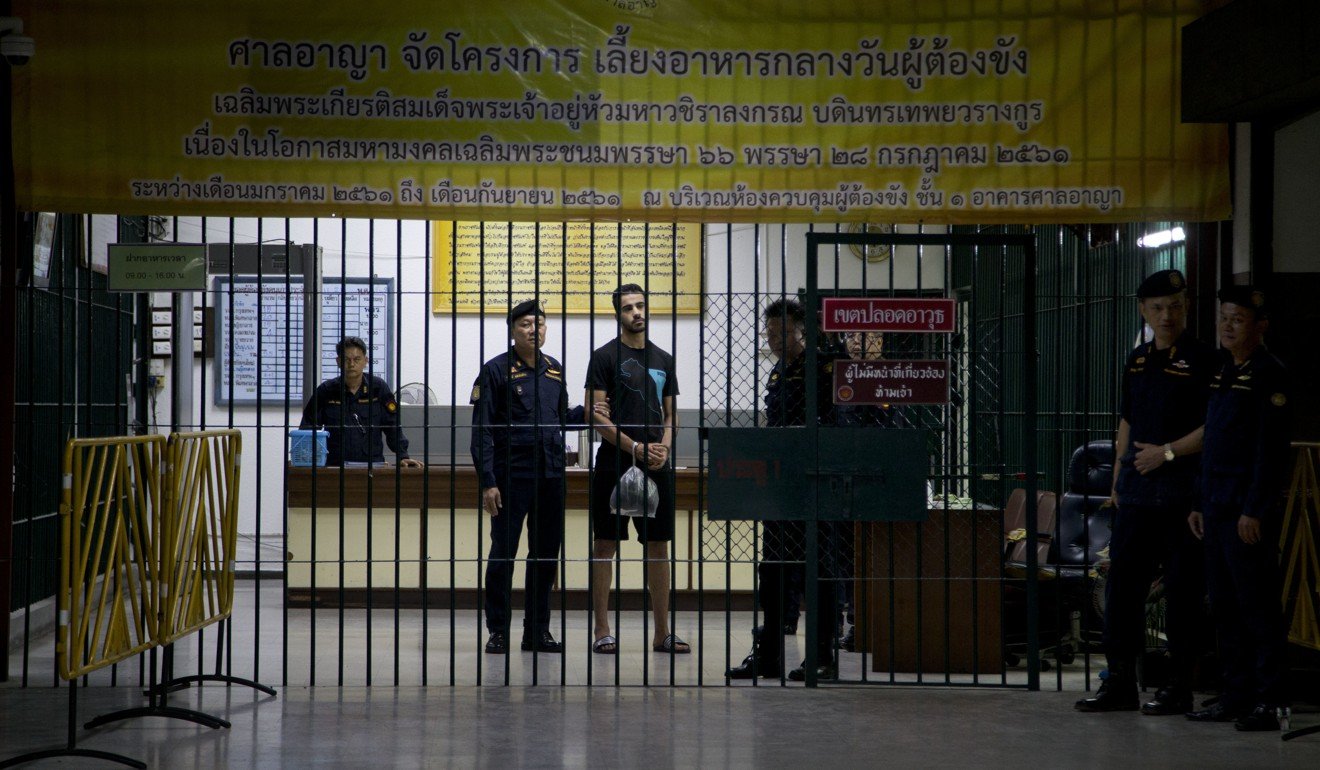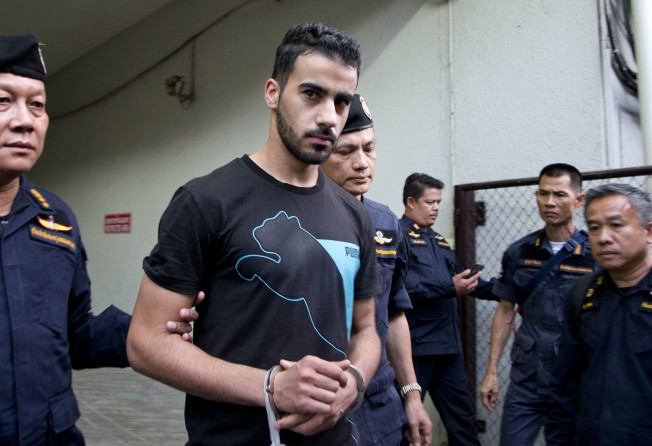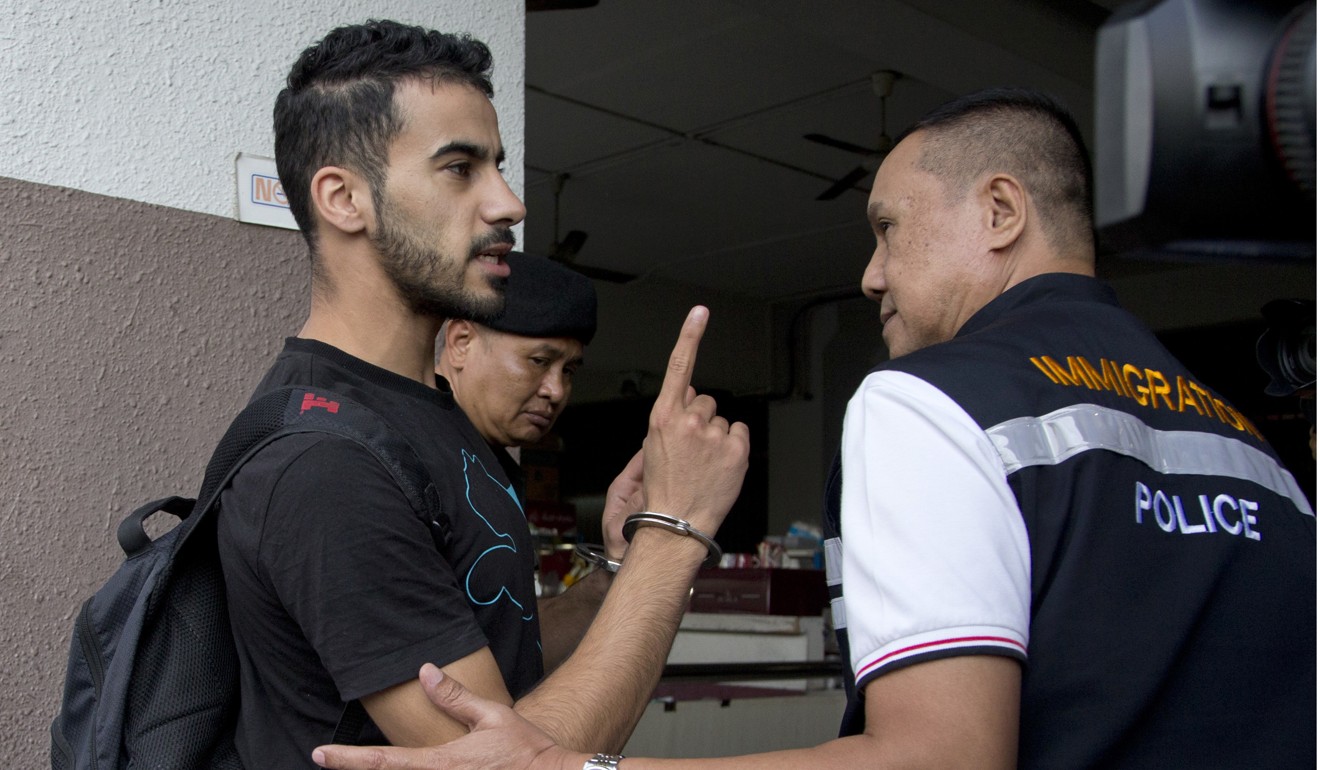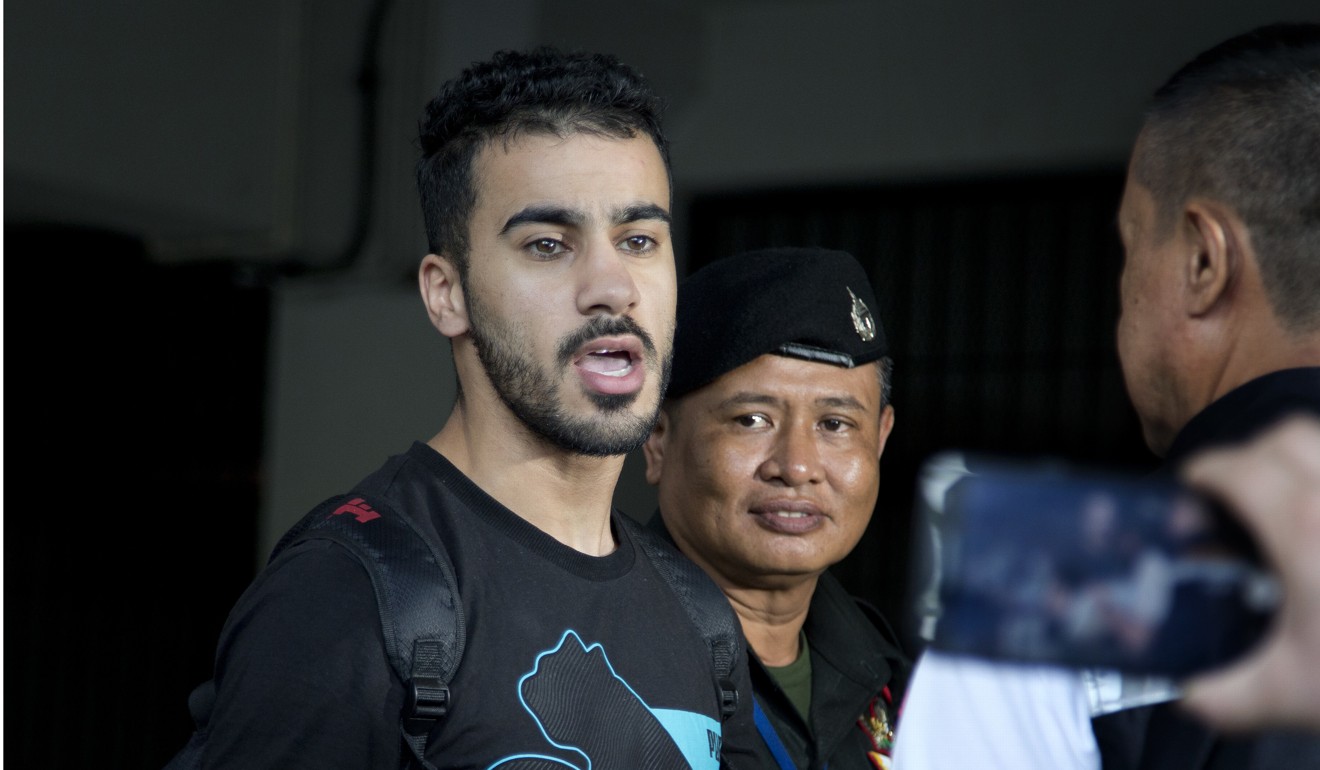
UN urged to help Australia-based soccer player Hakeem al-Araibi’s release from Thai jail
- Bahrain convicted Araibi on vandalism charges, but defence says it was impossible because he was playing football in a televised match at the time of the crime

Supporters of the Australia-based refugee Hakeem al-Araibi have petitioned the United Nations to try to get the young footballer out of a Thai jail cell, where he awaits extradition to Bahrain over a conviction he says is politically motivated.
He has been in detention for more than two weeks since his arrest at Bangkok airport after arriving for a holiday with his wife. A Thai court has ordered further detention of 60 days while it processes an extradition request from Bahrain, despite appeals from the Australian government to return Araibi.

The urgent appeal submission was compiled by rights groups including Americans for Democracy and Human Rights in Bahrain and the Bahrain Institute for Rights and Democracy.
It was addressed to the Office of the United Nations High Commissioner for Human Rights, and a number of high-ranking UN representatives including the special rapporteur on torture, and the working group on arbitrary detention.
“ADHRB and BIRD submit that the extradition of Mr Araibi to Bahrain would constitute an unlawful refoulement, and would be in violation of Thailand’s international legal obligations,” it said.
Araibi had been tortured before and probably would be again if he was extradited to Bahrain, it insisted: “The United Nations Committee Against Torture’s concluding observations found ‘widespread torture and ill-treatment’ in Bahrain, and noted that a ‘climate of impunity’ exists in Bahrain in regards to torture.”
Araibi was convicted in absentia in 2014 by a Bahraini court, based on the confession of his co-defendant and brother, Emad Ali Mohamed al-Araibi, who said the two of them and 150 others vandalised a police station at 6.30pm.

The court instead concluded that the time of the incident was 8pm, the submission said.
It detailed evidence it claimed showed Araibi’s innocence, including video of the match he was playing on the night of the alleged crime, and claims it would have been “physically impossible” for him to travel between the two – even going by the court’s timing of 8pm.
“Despite this alibi being presented to the court through Mr Emad al-Araibi’s defence, the court disregarded this evidence and convicted Mr Al-Araibi in absentia”, it said. “In addition to ignoring exculpatory evidence, the court also disregarded the allegations that Mr Emad al-Araibi’s confession was obtained through physical and psychological duress.”
A translation of the court ruling said there was insufficient evidence of physical or psychological violence because there was no sign of injuries and, when asked, the defendants said they had not been abused.
“The court does not need to respond to the evidence presented by the defence. It is sufficient to take the evidence that was conclusive in showing that they committed the crime,” it said.

Thai immigration authorities initially cited an Interpol red notice against him as reason for the arrest, but when that was lifted – believed to be after Interpol was made aware it should never have been issued – Thailand said Bahrain requested the arrest.
The timeline of events has raised numerous concerns about how Bahrain knew Araibi was preparing to travel, why Interpol granted their request for a red notice, and why the Australian federal police informed Thailand Araibi was on his way.
Human Rights Watch’s deputy Asia director, Phil Robertson, said the UN was sympathetic to Araibi’s situation and was among groups asking the Thai government for his release. Other government embassies, including the US, Sweden, and Germany, had also lobbied on his behalf, Robertson said.
He said Australia had to ensure it was exerting “maximum pressure” on Thailand to send him home, particularly after the revelation that police informed Thailand of his travel.
“My personal opinion is that should be investigated,” he said. “All they had to do was look at the record and see he’s a refugee.”